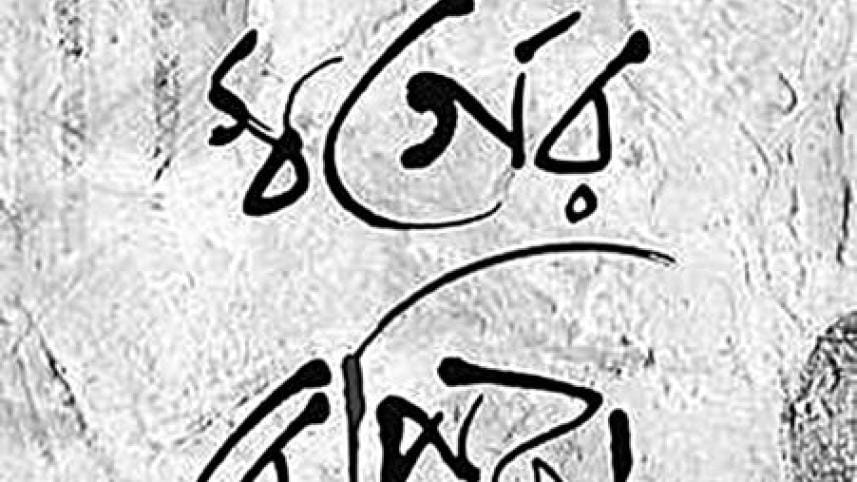Verses on love and agony: Mashuk Chowdhury's Swarger Replica

Two years earlier I had reviewed one of Mashuk Chowdhury's poetry collections Nodir Nam Dusshomoy for The Daily Star Book Review page. Since then I have been mesmerized by his poetry. You may ask, what is so fascinating about his poems? Two things to consider—first, his lucid diction, and second, the lyricism in his poetry. His latest poetry collection, Swarger Replica (Replica of Heaven) retains the same qualities I mentioned above. The collection contains sixty-seven poems, and most of these poems are about love, agony, revolution and nostalgia.
Chowdhury started writing poetry in the early 1970s. He seems to have this very special knack for writing about love. He also tends to be nostalgic. Swarger Replica opens with the poem "Abinawshar" (Immortal) which says man is mortal but the soul is immortal. In other words, the poem celebrates the imperishability of human soul. The poet tries to connect the rebirth of human beings to the changing seasons. He suggests that the way the soul welcomes change is in some integral ways similar to the way the six seasons of our region evolve.
"Jharapata" (Fallen Leaves), the second poem of Swarger Replica, deals with death. The poet opines that death can stop the movement of a life but it cannot close all. "Bangla Kobita" is another poem that is worth paying attention to. The poem notes how contemporary Bangla poetry is losing its appeal day by day and tries to investigate the causes behind it. Mashuk Chowdhury had argued earlier that though Bengali poetry once had vigor it has now lost that quality. However, in the final stanza he also predicts that contemporary Bangla poetry would soon revive.
The poem titled "Kobir Joggya Golap" (The Most Suitable Rose for a Poet) indicates that a poet needs a compatible life-mate to nurture his/her creativity. "Jiban Juddha" (Struggles in Life) is a poem which recounts a conversation between a father and a child. It notes that while everyone has a head not everyone can hold it high all the time though he would have it so. "Tritiyo Bishwer Shishu" (Children of the Third World) focuses on how most children of the third world countries suffer because of economic crisis, political instability, lack of food and education. The poet says that the children of the third world countries have forgotten how to laugh. In these parts of the world, most mothers and children lead insecure lives and consider sufferings their fate.
When I read the poem "Juddhe Keu Joyee Hoi Na!" (Nobody Wins a War), I was taken aback by Mashuk Chowdhury's composition of an amazing poem which brings into focus almost all the negative aspects of war. The poem tells how war never brings happiness: "In a war, no side wins." He clarifies this statement by pointing out that no country actually won WWI and WWII; rather, the two World Wars witnessed the defeat of mankind. All the cruelty and ugliness of human life come to the forefront during those wars.
Before I end I must discuss "Batrish, Nihata Bondhur Bari" (No. 32, The House of the Assassinated Friend). The poem is about Bangabandhu Sheikh Mujibur Rahman and his house in Rd. 32 in Dhanmondi Residential Area of Dhaka. It is also about love and revolution. The poem recounts how Bangladesh came into being because of the uncompromising leadership of Bangabandhu. Thereupon, the poet, feelingly and, metaphorically declares that the house no. 32, Dhanmondi, is the wounded heart of Bangladesh. I think this poem has the potential to sharpen our historical sense.
In short, while the early poems of Swarger Replica upholds the strength of love, the middle part of the book contain poems lamenting the undesirable aspects of life on earth, while the poems of the concluding phase of the book highlight the poet's dream for a better future. I hope that this collection of poems attracts the attention of poetry lovers.
The reviewer is Assistant Professor of English at Central Women's University (CWU).



 For all latest news, follow The Daily Star's Google News channel.
For all latest news, follow The Daily Star's Google News channel.
Comments